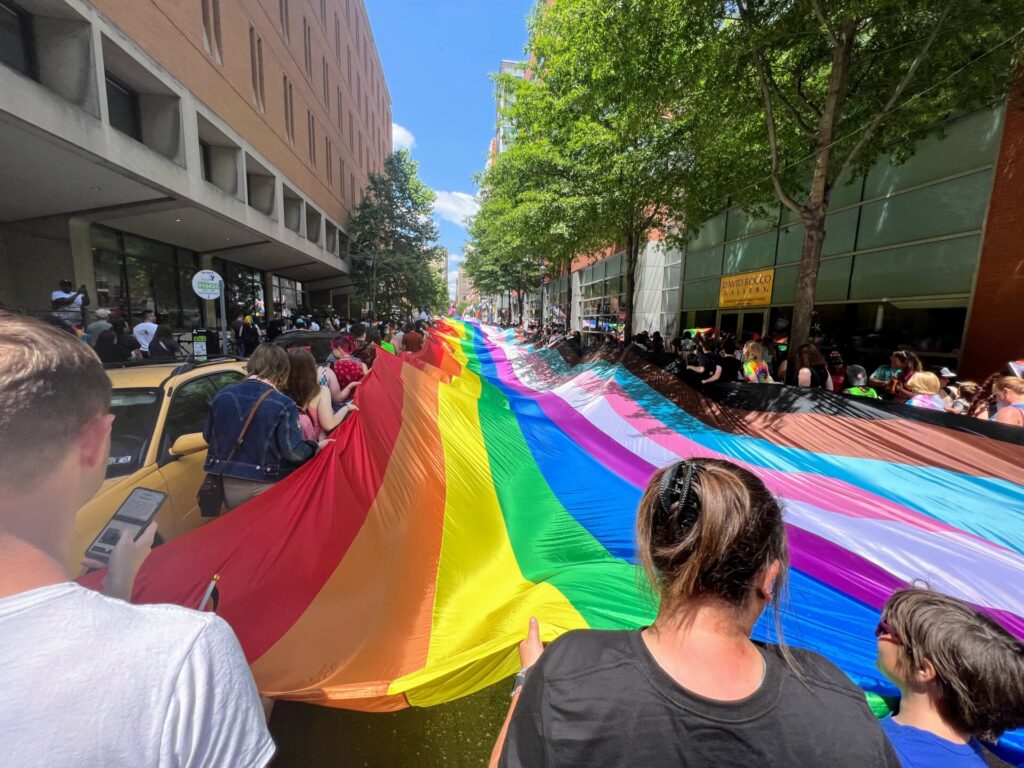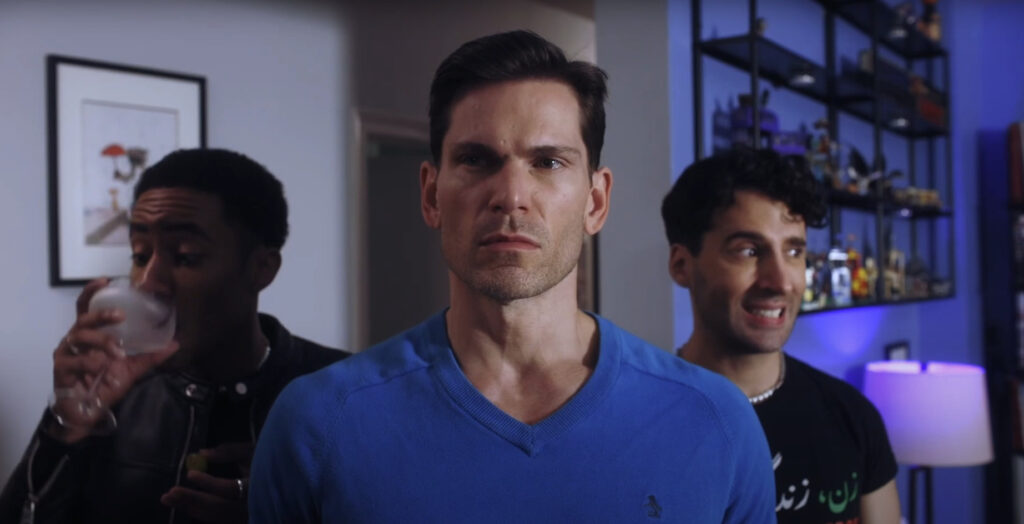A couple of years ago, my friend Chuck died. There was some debate as to whether or not his death was an accident, the result of drug abuse and self-mutilation, or if he actually meant to do it. In one way or another, I think Chuck wanted to end his life. He was 22, had undergone a lot of really serious changes related to job, home, and relationship, and he didn’t have a very strong support network. I think he was tired of coping with the silent homophobia and disapproval typical of his family (and of the religious, fairly conservative area we lived in). It was not his first suicide attempt. Even before the prior wrist slashing, there were about a dozen small ways of dying slowly he was engaged in. Hell, we all were. Unsafe sex and rampant drug abuse. The company we kept. The slow, deadening of our dreams in shitty jobs and accepting the lives we were handed.
Queer in small towns isn’t the same as gay in a city like Philadelphia. Community is less about sharing resources and stories, about forming friendships and families, and sustainable long term partnership in small towns. It’s more about survival, and what you sacrifice for some sense of identity. Gay bars are the queer community centers there and that kind of environment fosters substance abuse and risky sex practices. It doesn’t have to of course. Maybe I’m generalizing. But in my experience, I’ve found that it does. Being queer in a large city means that you likely have more options. A community center, youth-specific services, support groups, GLBTQ specific health care, legal services, etc.
Being queer isn’t easy for anyone all the time. Especially young people. Especially young people coming from conservative or abusive homes. That happens everywhere. Figuring out who you are is hard work. Realizing that you’re queer, and what that might mean is never easy. Added pressure from your family and peers, from church and school doesn’t help. When I came out, I was fifteen or so. I told someone in my high school and by a few days later, people were asking me about my sexuality point blank. I can’t imagine that things have changed. The clothes that the asshole jocks are wearing while they slam you into lockers might have changed, but I imagine that the epithets they shout probably haven’t. Physical and emotional abuse, fear and shame and guilt are all pretty timeless.
Queer teens are more likely to be kicked out and cut off from their families for being honest about who they are. They’re almost sure to experience some type of hate crime. According to Mental Health America, GLBT students hear some for of anti-queer language (homo, faggot, etc) about 26 times per day. Whether the bullying is physical or mental, or both, matters very little. Over a third of all out students had been injured or threatened because of their sexuality. I suspect that statistic is a little low. How likely is it that every student who gets called faggot or dyke, everyone who is elbowed or shoved into a locker will report it? To an overworked faculty who might or might not take action or to parents who might find fault with the gay kid? I suspect that shame and guilt, naturally play into the silence as well. How is it even possible to concentrate on academics, sports, or extracurriculars with that kind of pressure? Also according to MHA, gay students are much more likely to skip class, quit school, receive adequate sexual education (which can lead to unprotected sex), or as previously mentioned, become the victim of hate crimes.
Why am I telling you this? You, reading this … you probably already know. If you don’t have a grizzly teen coming out story, you probably know at least half a dozen people who do. But I think it’s easy to put your personal past behind you and forget about it because living it the first time sucked so much that you don’t want to think about it anymore than you have to.
I want to take a minute to remind you. Maybe you weren’t bullied. Maybe you were the one who did the name calling, but in the back of your mind you knew you had more in common with those kids than you’d care to admit. Maybe you just kept your head down and hoped not to be called out. My point is …. Gay kids are dying because someone, somewhere is telling them that’s preferable than sticking it out. Because despite all of the amazing things we’ve accomplished over the last fifty years, Smear the Queer is still an acceptable measure of heterosexual masculinity.
I’m no one special, really. Just a girl with big dreams and a voice. But voices are important, alone, they can echo truth and change lives. Together, they can change social consciousness. You have a voice too. You can be the message you wanted to send to yourself as a teenager. You probably know some kids. You might have nieces or nephews, neighbors, students, children of your own. Talk to them. Maybe they’re not gay, but chances are they know some teenager who is. Talk to them about the language they use. About calling something gay as an insult and why that might be offensive. Ask them if they see any parallels between homophobic words and racist ones, and why it’s so much more okay to call someone a dyke or a faggot, and what kind of message that might send.
Be out, be proud, but also be proactive. I believe that we, as a community, owe it to each other, to the future of these bright, beautiful young people (who might not have a voice or a support network of their own) to be beacons to them. To lead by example and to not be afraid or ashamed to call out someone’s homophobic behavior when we see it, or to explain to potential bullies why their actions are harmful. If you can and want to get involved with GLBT activism you believe in you should. If you can’t, for personal or professional reasons, please consider writing a check. However you have to do it, give yourself a voice, and use it. Be part of this community. We need you.






